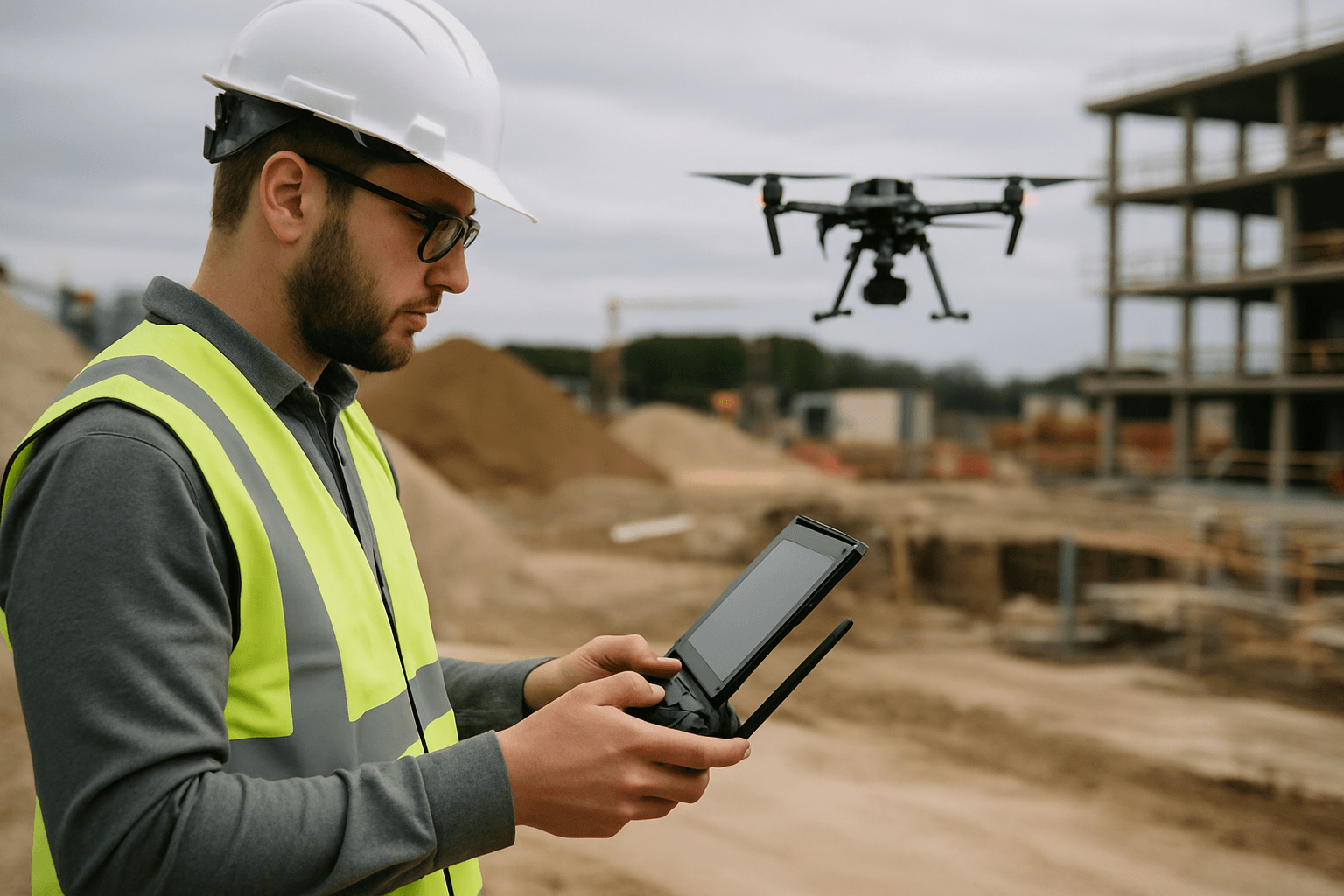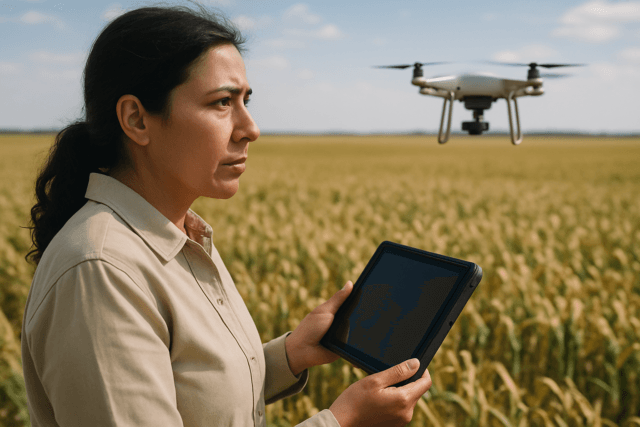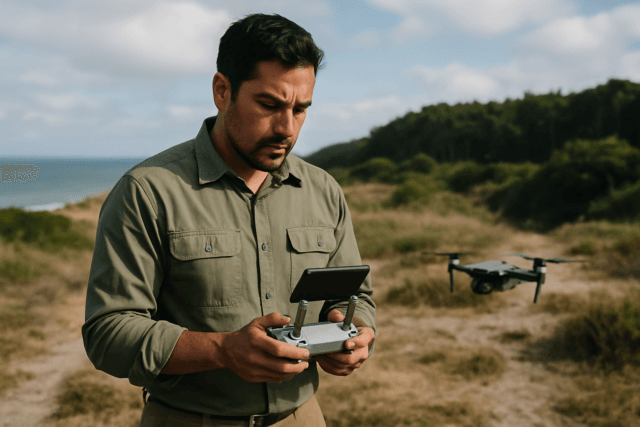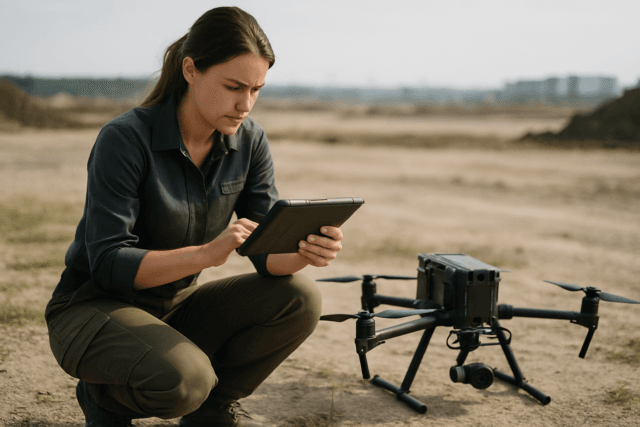Drones have rapidly evolved from expensive gadgets to indispensable tools that offer significant cost savings across various sectors. Their ability to perform tasks more efficiently, safely, and accurately than traditional methods translates into tangible financial benefits for businesses of all sizes. From agriculture and construction to logistics and disaster management, drones are reshaping industries and unlocking unprecedented opportunities for cost optimization.
Agriculture
Precision Farming and Reduced Inputs
Drones equipped with advanced sensors and cameras enable farmers to monitor crops, assess soil quality, and identify areas needing attention with unparalleled precision. This data-driven approach allows for targeted application of fertilizers, pesticides, and irrigation, minimizing waste and reducing input costs. Studies show that drone technology can reduce chemical usage by up to 40% and increase yields by up to 20%.
Labor Savings and Increased Efficiency
Drones automate time-consuming tasks such as crop monitoring, field inspection, and even planting, significantly reducing the need for manual labor. By covering large areas quickly and efficiently, drones free up farmers’ time and resources, allowing them to focus on other critical aspects of their operations.
Examples of Cost Savings in Agriculture
- Spraying: Drones can reduce operational costs for applying pesticides, fungicides, and fertilizers by up to 70% compared to manual spraying and 50% compared to tractor spraying.
- Monitoring: Drones can survey up to 1,000 acres per day, providing data on crop health, irrigation needs, and pest management.
- Planting: Aerial seeding techniques using drones can speed up the planting process and reduce the cost of manual seeding.
Construction
Efficient Project Monitoring and Progress Tracking
Drones provide real-time aerial imagery and data that enable construction companies to monitor project progress, identify potential issues, and make informed decisions. This leads to faster progress tracking and immediate adjustments, reducing project monitoring costs by up to 55%.
Accurate Estimates and Reduced Errors
Drones can quickly and accurately collect objective data of construction sites, providing precise representations of the area. Comparing the real site to the engineer’s model during pre-construction flights allows for the correction of any miscalculations, leading to more accurate estimates and more profitable jobs.
Simplified Land Surveying
Drones streamline land surveying by capturing key information in a fraction of the time compared to traditional methods. High-definition drone photography reveals the topography of the land, including elevation, drainage spots, and potential obstructions, with less manpower required.
Examples of Cost Savings in Construction
- ROI: 92% of construction firms using drones see a return on investment within one year.
- Material Management: One company realized they had to move 40,000 cubic yards more than what the engineer quantities were saying they needed to do at the beginning of the job, thanks to drone data.
Infrastructure Inspection
Faster and More Cost-Effective Inspections
Drones can complete inspections up to 90% faster than traditional methods. For example, a wind turbine inspection that would normally take an entire day can be done in less than an hour with a drone. Large-scale inspections of bridges, solar farms, or pipelines that would normally take days with scaffolding, cranes, and crews can now be done in a matter of hours using drones.
Reduced Equipment and Labor Costs
Drones eliminate the need for expensive equipment such as crane rentals, scaffolding, and heavy machinery. They also require smaller inspection teams, reducing labor costs and improving safety.
Improved Safety and Reduced Risk
Drones can access dangerous or hard-to-reach areas, minimizing the risk to human inspectors. This reduces the likelihood of accidents, injuries, and fatalities, leading to lower insurance premiums and fewer injury-related costs.
Examples of Cost Savings in Infrastructure Inspection
- Cost Savings: Companies using drones save between 30-50% compared to traditional inspection methods. A bridge inspection that might cost $10,000 traditionally could be completed for as little as $5,000 with a drone.
- Civil Engineering: Pipeline and bridge inspections see cost reductions of 25-30% while ensuring compliance with safety and environmental standards.
Logistics and Delivery
Last-Mile Delivery Optimization
Drones offer a potential alternative to traditional last-mile delivery methods, providing faster deliveries and reducing costs. They are particularly effective in areas with low demand or difficult terrain.
Reduced Operational Costs
Drone delivery can significantly cut operational costs by reducing delivery times, optimizing supply chains, and automating delivery processes.
Examples of Cost Savings in Logistics and Delivery
- Depot-Based Drone Delivery: Model results showed that depot-based drone delivery led to up to 60% cost savings compared to truck-only delivery when servicing low demand in small areas.
Disaster Management
Rapid Response and Situational Awareness
Drones can be deployed within minutes to provide immediate insights into disaster zones, which is critical for time-sensitive scenarios. They offer real-time aerial imagery and data that help emergency responders assess the situation, locate survivors, and coordinate rescue efforts.
Cost Savings in Long-Term Operations
By reducing reliance on large-scale human and vehicle deployments, drones can significantly cut operational costs in disaster management.
Enhanced Safety and Reduced Risk
Drones minimize the risks to human responders by navigating hazardous environments such as fire zones or collapsed structures.
Examples of Cost Savings in Disaster Management
- Faster Containment: Investing in drones enables faster containment of fires, reducing property damage and loss of life.
- Reduced Time to Locate Survivors: The initial investment in rugged drones with specialized sensors is offset by the reduced time to locate survivors, minimizing loss of life and preventing further damage to infrastructure.
Environmental Monitoring
Cost-Effective Environmental Surveys
Drones reduce costs for environmental surveys by 30-50% and allow for faster data collection on ecosystems, wildlife populations, and habitat changes—all without disrupting the environment.
Reduced Carbon Footprint
Drones operate with near-zero emissions, making them an eco-friendly alternative to traditional equipment like trucks, helicopters, and cranes.
Other Industries
Utilities and Energy
A single drone can inspect 15-20 miles of power lines per day, compared to just 1-2 miles with traditional ground-based crews.
Marketing and Public Relations
Drones can be used to collect photographs and videos on job sites, or even at the office, that can be used for marketing, recruitment and public relations campaigns. The maneuverability of drones can create dynamic photographs and videos that a person on the ground simply cannot easily replicate.
Factors Affecting Drone Costs
Drone Type
Fixed-wing and multi-rotor drones vary in price, with fixed-wing models often costing more.
Camera Quality
High-resolution cameras or sensors (like thermal imaging) will drive the price up.
Software and Data Processing
Advanced software to analyze data collected by drones can add to the overall cost.
Maintenance and Training
Maintenance, training, and software updates are part of the investment too.
Conclusion
Drones are revolutionizing industries by offering significant cost savings, increased efficiency, and improved safety. As technology advances and regulations become more streamlined, the adoption of drones is expected to continue to grow, unlocking even greater opportunities for businesses to optimize their operations and reduce costs. While initial investments may seem substantial, the long-term benefits and return on investment make drones a worthwhile investment for businesses across various sectors. From precision agriculture to infrastructure inspection and disaster management, drones are proving their value as indispensable tools for the modern world.





